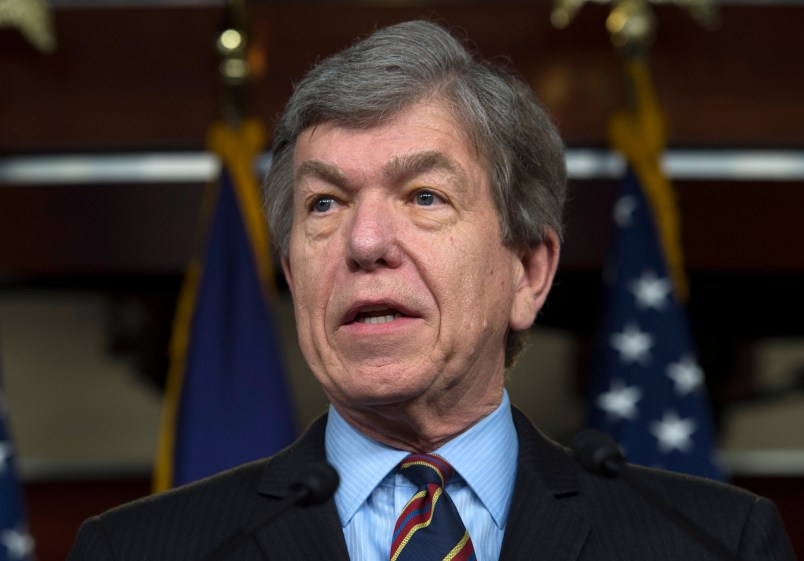Sen. Roy Blunt (R-MO) on Wednesday spelled out the approach the Senate will likely take in providing additional funding for election officials in the next round of pandemic legislation.
“I am very open to having that discussion about additional money to the states,” Blunt told TPM, after a Senate committee hearing on election preparations.
Blunt, who is close with Majority Leader Mitch McConnell (R-KY), chairs the Senate committee with jurisdiction over election issues and he is also member of the Senate Appropriations Committee.
Getting Blunt on board for more election funding will be key for election officials and voter advocates who are pushing for the additional federal support.
The COVID-19 package that the House passed earlier this summer provided $3.6 billion in additional election funding.
Democrats have been pushing for some minimum standards for states for the use of additional federal funds, like mandates that states offer absentee and early voting. McConnell, who has been largely dismissive of the idea that voters have had trouble accessing the ballot, is not a fan of conditioning the federal aid on making voting easier. Blunt said it was “likely” the additional funding would not come with any strings attached.
Blunt hinted that the Senate proposal would be provide less funding than the House’s, which was based on a Brennan Center estimate that election officials would need $4 billion total to scale up their vote by mail operations for the pandemic.
“Some of the numbers that were shared today were put together very early in the year, [when we were] anticipating three or for elections, to where now you’re down to, in probably almost every state, to just one,” Blunt said.
Blunt also indicated his preference that any additional federal funding for elections come with a matching requirement, meaning that for a state to receive the funding it would need to put up in its own cash an amount equal to a certain percent of the amount being provided by the federal government.
The $400 million that Congress provided state election officials in the March coronavirus law came with a 20 percent match rate, which has proven to be a challenge for some states that did not have enough extra cash of their own to meet the match rate of the full federal amount allotted to them.
Blunt suggested that the Senate would be looking at lowering the match rate of the initial tranche, so states had easier access to the “money that is already out there.”
He said the actual amount of funding in the upcoming Senate package will be settled on once it is determined how much money has still gone unspent from what Congress passed in its March COVID-19 package and in other types of election funding legislation.
Blunt’s comments to TPM came after the committee that he chairs, the Senate Rules and Administration Committee, hosted election officials and a prominent voting rights lawyer for testimony on how voting has gone in the pandemic.
Match rates for federal funding were a major point of discussion, with Blunt saying there is “some merit” to that approach, though the match rate could be very small. However, even Republican elections officials at the hearing — Tennessee Secretary of State Tre Hargett and West Virginia Secretary of State Mac Warner — expressed their skepticism towards imposing that requirement, though their states had been able to meet the match rate of the initial COVID packages.
“Without the matches, it would be easier to get this money down to where it’s needed,” Warner said.



